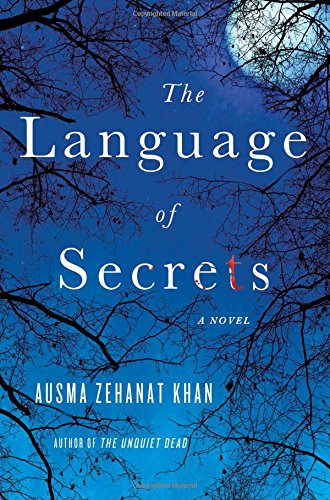Esa Khattak and his partner Rachel Getty are back in a sophomore mystery called The Language of Secrets, in which Esa is called in to investigate the death of an undercover agent killed while investigating an extremist terror cell. The cell is still planning an attack in Toronto, so it’s vital that Esa should investigate the murder without letting the cell discover that the dead man, Mohsin (a university friend of Esa’s), was an agent of law enforcement.

I don’t read a lot of mysteries, so I feel unqualified to speak to the success of the book as a mystery. As a piece of fiction, though, I found it immensely satisfying. Esa gets brought onto the case almost as political cover: They need a Muslim officer who can appear to be investigating the case without investigating it so much that the sting on the terrorist cell gets derailed. The lead detective handling the terror case believes that Esa was promoted unfairly for “diversity” purposes, and he is condescending and rude to Esa at every turn while undermining the legitimacy of the murder investigation that Esa and Rachel are working on. That his distrust of Esa turns out to have real, terrifying consequences for the case is predictable but also the kind of thing I don’t see played out that often in — particularly — mystery books.
At first I was surprised that Khan chose to go with a “Muslim terrorist cell” plot for her second book. The previous book dealt with the genocide in Bosnia, with Esa’s religious background giving a context and particularity to his investigations. This story felt, at first, altogether more like one that I’d encounter on a television show. But one of Khan’s strengths as a writer is that she uses the structure of a familiar story while fleshing out a range of experiences and faiths for her Muslim characters. Members of the cell have different motives and levels of involvement, while people like Esa and his sister, or Mohsin’s widow, or Mohsin’s father, practice a peaceful version of Islam that is, of course, far more common and normal than the violent extremism we see in the cell leader, Hassan.
An element of the book that I found very unsatisfying was the character of Esa’s sister Rukshana. There will be spoilers in this paragraph only. We find out early on — through Ciprian Coale — that Rukshana is engaged to the apparent leader of this extremist terror cell. When Esa goes to speak with her about it, Rukshana is hotly defensive of her relationship, which has arisen within the last year, and she refuses to listen to Esa’s words of caution. Okay, fine, people in love never listen to anyone who naysays them. The book never tells us what Ruksh sees in Hassan, or where she met him, or what the course of their relationship has been; and at the end of the book, after Hassan nearly kills Ruksh, we see her anger with Esa for not telling her that Hassan was part of a terror cell. But we don’t see any moment where she’s like “oh my God the person I said I loved was a violent terrorist.” It felt weird and off — she felt like a plot device, not a character in her own right.
Recommended!